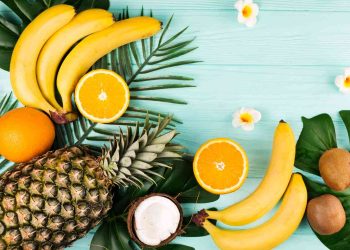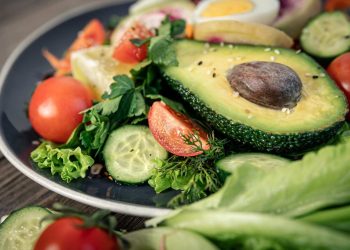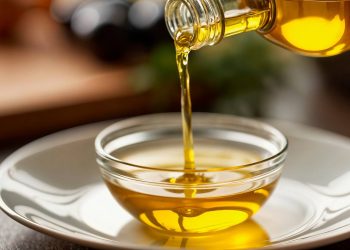Have you ever found yourself struggling to focus, feeling a bit foggy or forgetful? You’re not alone. Many of us experience moments when our brains just don’t seem to be firing on all cylinders. What if I told you that some herbs could help boost brain circulation and get those neurons buzzing again? Yes, you heard that right! Let’s dive into the fascinating world of herbal remedies that might just give your brain the lift it needs.
Contents
The Importance of Brain Circulation
Before we jump into the herbs, let’s take a moment to understand why brain circulation matters. The brain is a highly vascular organ, meaning it relies on a rich supply of blood to deliver oxygen and nutrients while removing waste products. Good circulation ensures that your brain functions optimally, enhancing memory, focus, and overall cognitive performance. Poor circulation, on the other hand, can lead to mental fatigue, confusion, and even more serious conditions over time.
The Role of Herbs
Herbs have been used for centuries in various cultures for their medicinal properties. Some have been shown to improve blood flow and enhance cognitive function. So, without further ado, let’s explore five herbs that might help boost brain circulation naturally.
1. Ginkgo Biloba
What It Is
Ginkgo biloba, one of the oldest living tree species, has been utilized in traditional medicine for thousands of years. It’s often touted for its potential to improve memory and cognitive function.
How It Works
Ginkgo biloba is believed to enhance blood flow by dilating blood vessels and reducing the stickiness of platelets. This means more oxygen and nutrients reach the brain, which can help improve memory and cognitive performance.
Pros and Cons
Pros:
- Some studies suggest it may help with age-related cognitive decline.
- It’s widely available in various forms, including capsules and teas.
Cons:
- Results can be inconsistent; some people may not notice any benefits.
- It can interact with certain medications, such as blood thinners, so consult a healthcare provider before using it.
Personal Take
I’ve noticed a difference in my focus when I take Ginkgo regularly, especially during those long afternoons when my brain feels like it’s running on empty.
2. Rosemary
What It Is
Rosemary isn’t just a culinary herb; it’s also a powerful brain booster. Traditionally, it’s been associated with memory enhancement and mental clarity.
How It Works
Rosemary contains compounds like rosmarinic acid, which may improve blood circulation. Additionally, its aroma has been linked to enhanced memory and concentration.
Pros and Cons
Pros:
- Easy to incorporate into your diet—think roasted vegetables or herbal teas.
- Its scent alone has been shown to improve cognitive performance.
Cons:
- While generally safe, high doses can cause digestive issues for some individuals.
- Not everyone enjoys the strong flavor.
A Quick Tip
Try keeping a rosemary plant on your kitchen windowsill. Not only does it look great, but the fresh scent can invigorate your mind while you cook.
3. Ginseng
What It Is
Ginseng is a well-known adaptogen, often used in traditional Chinese medicine. It’s celebrated for its potential to enhance energy levels and reduce fatigue.
How It Works
Ginseng may improve blood flow by promoting nitric oxide production, which helps dilate blood vessels. This can lead to better oxygenation of the brain.
Pros and Cons
Pros:
- May help reduce mental fatigue and increase alertness.
- Available in various forms, including teas and extracts.
Cons:
- Some people may experience side effects like insomnia or digestive issues.
- Quality can vary significantly between products, so it’s essential to choose reputable brands.
My Experience
I’ve found that a cup of ginseng tea in the morning gives me a nice boost. It’s like a gentle nudge to wake up my brain without the jitters that coffee sometimes brings.
4. Bacopa Monnieri
What It Is
Bacopa monnieri, also known as Brahmi, has been used in Ayurvedic medicine for centuries. It’s often touted as a cognitive enhancer.
How It Works
Bacopa is believed to improve brain circulation by boosting nitric oxide levels, which helps improve blood flow. It’s also known for its antioxidant properties, which can protect brain cells from damage.
Pros and Cons
Pros:
- Some studies indicate it may improve memory and cognitive function, especially in older adults.
- Generally well-tolerated with few side effects.
Cons:
- Effects can take time to manifest, often requiring weeks of consistent use.
- Some people may experience mild digestive discomfort.
What the Research Says
A study published in the journal Psychopharmacology found that Bacopa improved cognitive function in healthy adults after 12 weeks of supplementation (Stough et al., 2001).
5. Ashwagandha
What It Is
Ashwagandha is another adaptogen that’s gained popularity for its stress-reducing properties. It’s often used to help manage anxiety and improve overall well-being.
How It Works
This herb may improve brain circulation by reducing oxidative stress and inflammation. Stress can constrict blood vessels, so managing it effectively can enhance blood flow to the brain.
Pros and Cons
Pros:
- May help reduce anxiety and improve mood, indirectly benefiting cognitive function.
- Generally considered safe for most people.
Cons:
- Can cause drowsiness, so it might not be ideal for daytime use.
- Some people may experience gastrointestinal upset.
A Personal Anecdote
I’ve started taking ashwagandha in the evenings, and I’ve noticed a more restful sleep. Waking up refreshed has definitely helped my focus during the day.
FAQs
1. Can these herbs replace my medication for cognitive issues?
While these herbs may provide benefits, they shouldn’t replace prescribed medications. Always consult with a healthcare provider before making changes to your treatment plan.
2. How long does it take to see results from these herbs?
Results can vary. Some people may notice effects within a few weeks, while others may take longer. Consistency is key!
3. Are there any side effects associated with these herbs?
Most of these herbs are well-tolerated, but some individuals may experience side effects such as digestive upset or insomnia. It’s always best to start with small doses.
4. Can I combine these herbs?
Combining herbs can enhance their benefits, but it’s essential to consult with a healthcare provider to ensure safety and avoid potential interactions.
Conclusion
Incorporating these herbs into your daily routine may provide a natural boost to brain circulation, enhancing your cognitive function and overall mental health. It’s fascinating how nature offers us tools to support our bodies and minds, isn’t it?
As you explore these options, remember that individual results may vary. Finding what works best for you is key, and always stay informed about potential interactions with medications or other health conditions.
This article is for educational purposes only and is not a substitute for professional medical advice. Always consult a qualified healthcare provider before making changes to your health routine.
References
-
Stough, C., Downey, L. A., Lloyd, J., Hutchison, C. W., & Wesnes, K. A. (2001). The chronic effects of an extract of Bacopa monniera (Brahmi) on cognitive function in healthy human subjects. Psychopharmacology, 156(4), 481-484. https://doi.org/10.1007/s002130100610
-
Mayo Clinic. (n.d.). Ginkgo biloba. Retrieved from https://www.mayoclinic.org/drugs-supplements-ginkgo-biloba/art-20361096
-
National Center for Complementary and Integrative Health. (n.d.). Ginseng. Retrieved from https://nccih.nih.gov/health/ginseng
-
Harvard Health Publishing. (n.d.). Herbs and supplements for cognitive function. Retrieved from https://www.health.harvard.edu/mind-and-mood/herbs-and-supplements-for-cognitive-function
Get Your FREE Natural Health Guide!
Subscribe now and receive our exclusive ebook packed with natural health tips, practical wellness advice, and easy lifestyle changes — delivered straight to your inbox.














